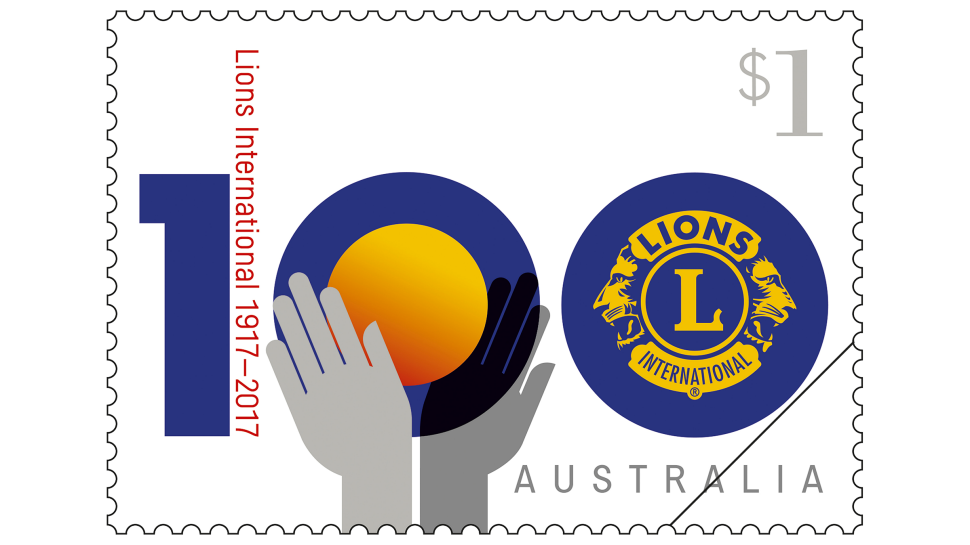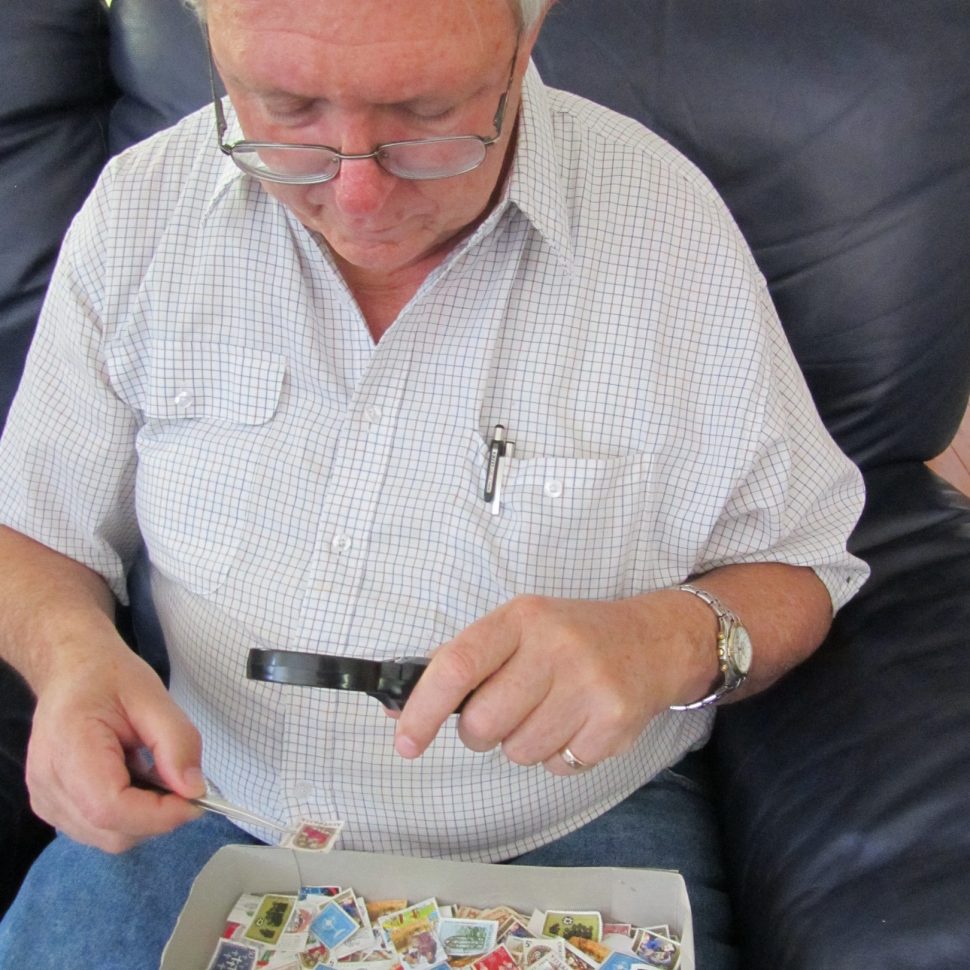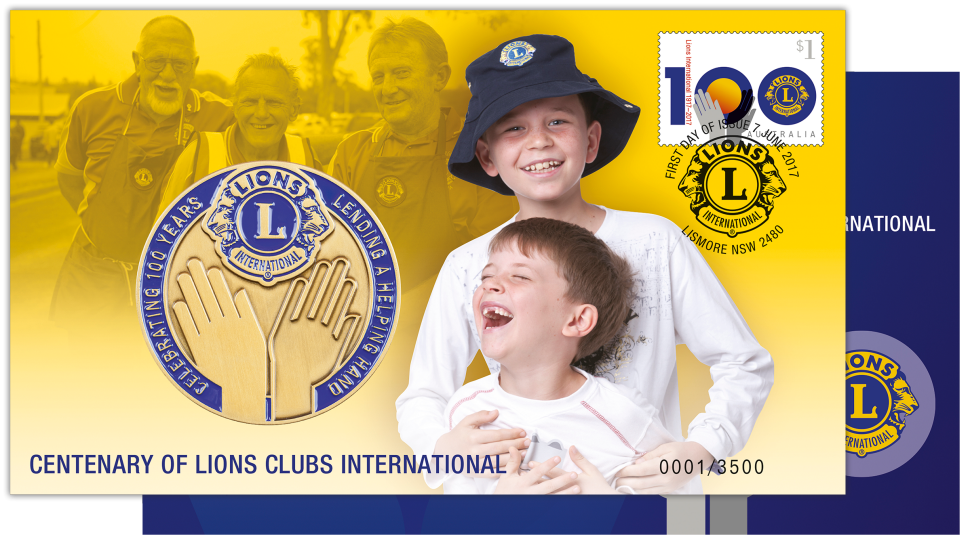In 2017, the largest community service organisation in the world, Lions Clubs International, celebrates its centenary. Lions Clubs International is a secular and politically non-aligned community service organisation that seeks “to create and foster and spirit of understanding among the people of the world”. Specifically, their volunteers fundraise to meet humanitarian needs, whether local, national and international, including disaster relief, support for the environment, medical research, and support for youth and older people.
Since the establishment of the first Lions Club, in Chicago, USA, in 1917, Lions Clubs International has grown to around 46,000 clubs and 1.4 million members across the globe. Its founder, the late Melvin Jones, an American businessman, believed that those who were successful in business possessed the very tenacity, drive and determination to do good work beyond the world of business. He felt strongly that business leaders should put their talents to work to improve their communities.
To celebrate the Centenary of Lions Club International, Australia Post is releasing a stamp issue on 7 June 2017.
In Australia, Lions Clubs have been in force for 70 years, thanks to the late William Tresise. In the 1940s, Tresise was about to exceed the age limit placed on volunteering within the community organisation he belonged to. Keen to do more, Tresise attended a conference of community service organisations in San Francisco, where he met several Lions members. He discovered that not only was there no age limit in Lions Clubs, but also that the clubs were engaged in very important work. He spoke with various Lions leaders in America, including Melvin Jones, resulting in Tresise being tasked with setting up a Lions club in Australia. Upon arriving home, Tresise gave a talk about Lions Clubs International to the business community in the small town of Lismore. Thanks to his enthusiasm and hard work, within 12 months the Lismore Lions Club was established, receiving its official charter in September 1947 and making Australia the 18th country to join Lions Clubs International. At the time of Tresise’s death in 1975, Lions Australia had almost 1,000 clubs. Now, in 2017, that number is more than 1,200 in Australia and Papua New Guinea.
The Lions Australia motto is “making our communities a better place to live, work and grow” and there is no doubt that much has been done by Lions in the name of that motto, especially in the areas of disaster and emergency relief, medical research (including involvement in the development of the bionic ear and cervical cancer vaccine, as well as research into diabetes and childhood cancer) and community service (including drug education programs, programs for the visually impaired and children with cerebral palsy, as well as raising funds towards local parks, sporting centres and more). Specifically for the centenary year, Lions Australia has been working hard as part of its Community 100 program, donating more than $100,000 to more than 100 local projects across the country, spanning the areas of youth, vision, hunger and the environment.
We spoke to Ted Henebery, a long-time Lions Club member and President of the Australian Chapter of the Lions Clubs International Stamp Club (LISC), about his involvement in both Lions and stamp collecting.
How long have you been associated with Lions Clubs International in Australia?
“I joined Lions in 1993. I discussed some different organisations with a friend and decided that Lions would fit what I would like to do. Shortly after I joined, we did fundraising for humanitarian efforts in Rwanda. I was so surprised with the fantastic response we got; it made me realise how well respected Lions Club was. That was the day I become a committed Lion. I had decided to join the Hornsby chapter as it was a mixed club of people from all walks of life. Barry Palmer, who was my sponsor, ended up being the first Australian International President.”
What motivated you to join Lions?
“I decided I wanted to see how to help in the community. I had come to realise how important it is to give back to the community. I was running a business and thought it was my time to help. I contacted Lions Head Office in Newcastle and was followed up from there. Being with this group, I saw how dedicated the Lions were in helping all those in need. We did an art show and raised money for Hornsby Hospital. This had been running for many years.”
What kinds of activities do you undertake as part of Lions?
“At that time we helped do odd jobs and cleaned up gardens for the elderly. Now, we hold BBQs where we raise funds for community needs. Lions help other organisations when they need help with BBQs too. And we sell Lions Christmas cakes and puddings – that’s our biggest fundraiser every year!”
What do you enjoy and find most rewarding about your involvement in Lions?
“Firstly you were made to feel welcome and to feel part of a group making a difference locally and globally. You wear your Lions lapel pin, and other Lions will recognise it wherever you are. Lions have clubs in 210 countries and geographical areas. Lions Clubs International is the largest service organisation in the world.
“The first job I took on was the Bulletin editor, which my wife Pauline often did for me. She joined the club a few years later. Two of the long-time members took me under their wing. One encouraged me to go to the district, multiple district and international conventions. You realise that service to others has no borders. There you start to really realise just how much Lions does in the community. Each club is autonomous and as communities differ, so do their projects.
“Lions Clubs in Australia also support the Lions Clubs International Foundation, which has given more than one billion US dollars since it was formed in 1968. Money goes to disasters, or to big projects that a small club needs help in funding. We have always supported recycling of spectacles, for example. These are sent to a lab where they are tested, and then sent to where they are needed. We also support cataract operations. These days, Lions also supports measles vaccination in developing countries. Lions were asked by Helen Keller in 1925 to be “Knights of the Blind in the crusade against darkness”; so the prevention of blindness has been a focus since then.
“I take great interest of seeing all the projects that Lions are involved in come to fruition. Recently, we have been involved in fund-raising to get a women’s shelter going in our area. Seeing these projects happen is what I find most rewarding.
“By going to conventions, you also develop a circle of friends. I have been going to international conventions, where Lions have a stamp club stand, and I enjoy having the opportunity to talk with fellow Lions with the same interest.”
What do you believe are Lions Clubs Australia’s major contribution to Australian society?
“Our club was involved in starting the Australian Lions Childhood Cancer Research Foundation (ALCCRF). When this was first launched, there was a child cancer survival rate of 20 per cent. Now it is close to 90 per cent, and Australia has become a leader in this area of research. Another major contribution is the Australian Lions Children Mobility Foundation (ALCMF), providing mobility aids to more than 1,000 children.
“There are large ongoing projects too, like our Youth of the Year program, which involves numerous students across Australia, recognising the volunteer work they do and giving them confidence in public speaking. It starts with local schools and goes up to state level, with the final winner announced at our multiple district convention each year. The national winner then goes into the international competition. These are long-term projects, but there are short-term projects too, like setting up a tool shed and a youth community hub, after the most recent fires in Victoria.
“Australian Lions Clubs are also often involved in disasters areas. Sometimes they are the first at the ready to help. The amount of volunteer work in each community in which we are involved is incredible. Australia can feel proud of all their volunteers. There is a huge group of people with good attitudes and intentions, who really want to help those in need.”
When did you start collecting stamps and why?
“I started saving stamps when I was eight years old. At that time I started two albums, one for dad and one for myself. I took up the interest in stamps from my father who was interested in coins and stamps. I was always interested in the world and travel. Stamps gave me an interest to know the world. I had a teacher who shared stories about travel which fuelled my interest even more. I become a radio operator after I left school, which gave me the chance to travel. I have been fortunate to travel to all seven continents.
“I still have those original albums after 60 years. They were worked on for about 17 years. There was a period of time when I just worked and put my hobby aside, but around the age of 40 I started doing a little stamp collecting again.”
You collect Lion’s Club-related stamps from around the world. Can you discuss your collection and any particular highlights?
“When I went to my first multiple district Lions Club convention, I meet Ross Payne, who had a stand there from the Lions Clubs International Stamp Club. He had some stamps to sell and since then, I have grown my collection to 10 albums.
“I collect Lions Clubs-related stamps, usually mint stamps, specimens and overprints, and I collect colour proofs and colour trails, minisheets and combination sheets. There are many errors with the overprints. Where stamps are available with selvages with colour bars, or any sort of variation I can find, that peaks my interest. Lions stamp collectors are lucky; there is a fantastic catalogue on Lions stamps and also an encyclopaedia.
“Our Lions International Stamp Club members and I are very excited about the stamp and products being released for our 100 centennial year by Australia Post. It is exciting, as it allows people to learn a little bit more about Lions. Also it covers an area of interest for collectors. The more people who know about Lions means more hands to help our community. Our international colleges have commented that our release is the best they have seen for our 100 years of Lions celebration!
“One important project the Lions International Stamp Club is involved in is our fundraising for the ALCMF. We encourage people to collect stamps on and off papers from Australia and the world and give them to us. These are then prepared for auction, so that we can raise money and give more children with cerebral palsy the chance to walk. Anyone interested can donate stamps and collections, by phoning me (Ted Henebery) on 0414 806 840 or sending them to:
Lions Club of Hornsby
PO Box 3053
Asquith NSW 2077
Australia
The Centenary of Lions Clubs International stamp issue is available from 7 June 2017, online, at participating Post Offices and via mail order on 1800 331 794, while stocks last.
View the gallery of stamps and technical details for this issue.
This article was produced at the time of publication and will not be updated.




